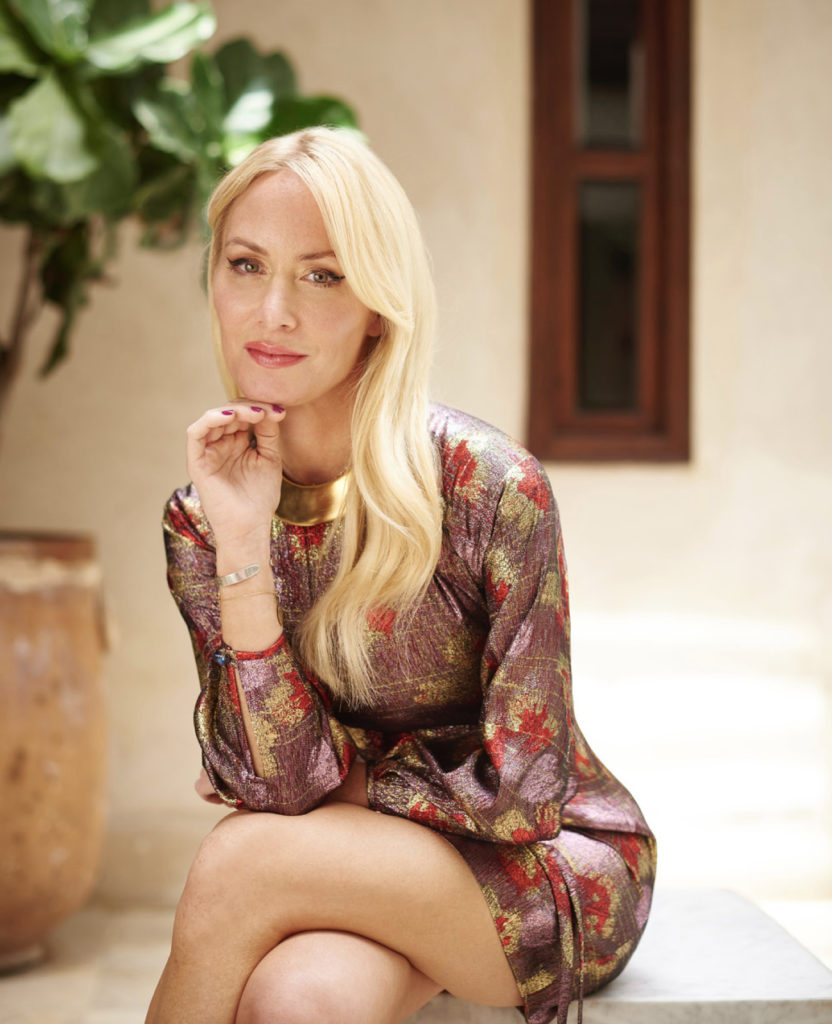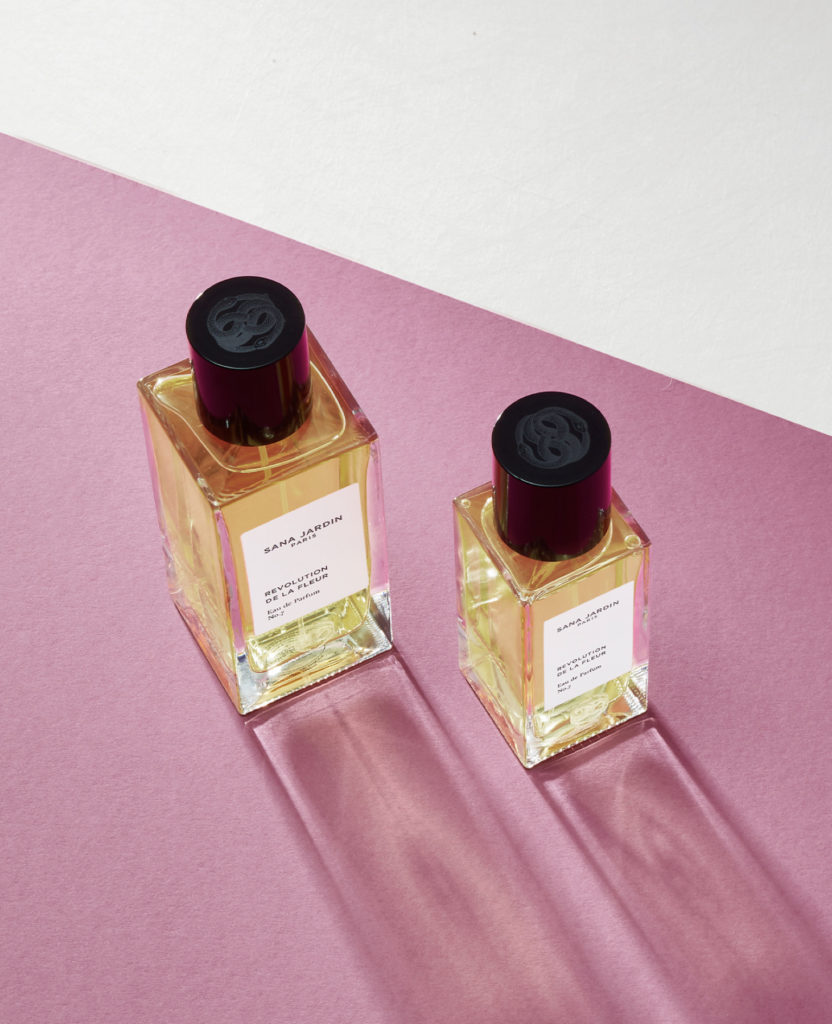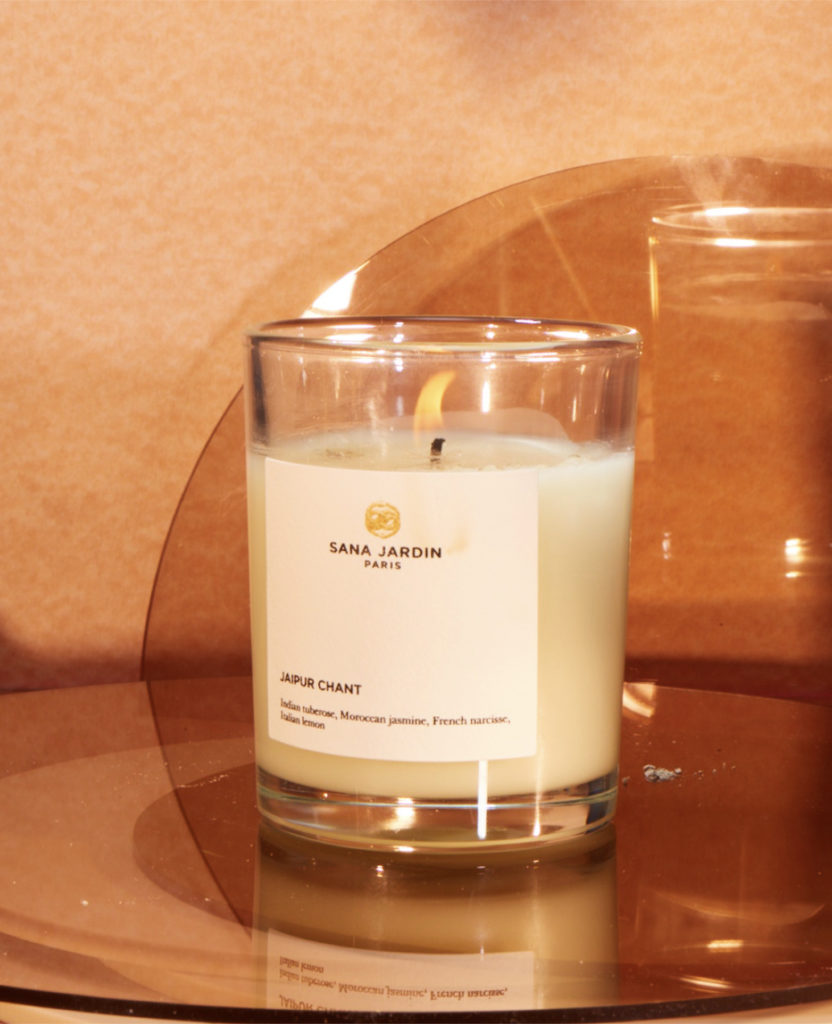“I find it so mystical and bewitching and enchanting… all these potions we use to elevate.”

Amy Christiansen has spent her globetrotting 25-year non-profit career improving economic equity at a macro level, from working at the Robin Hood foundation in New York to a pro bono position doing development and strategy for the Clinton Health Access Initiative in London. But it wasn’t until she began work with international human rights lawyer and wife of the former British prime minister Cherie Blair on her foundation that the seeds for her brand Sana Jardin were firmly planted. “What Cherie did was identify what she called ‘the missing middle,’” says Christiansen, pointing out that while women in low income communities might have access to small loans and women in big business might have access to venture capital, it is the women between those two poles who are often lacking access to transformative funding. She says “I started to see the power of commerce in changing women’s lives.”
That, coupled with a lifelong love of fragrance and travel inherited from her grandmother, led her to perfume. “I find it so mystical and bewitching and enchanting,” she says. “All these potions we use to elevate.”
Morocco, a place she has visited 100 times, started to become an obvious place to focus her energy. She recalls a story from The Scent Trail by Celia Lyttelton, where women working in North Africa during the orange blossom harvest would wear all white so that they could extract and keep calm the very soul of the flower.
It’s a sacred and romantic story, but one with a harsh reality: this ritual, and others like it, amount to inconsistent, seasonal work performed by women in rural, low-income communities. So Christiansen worked with Les Aromes du Maroc and the non-profit Nest to create a model called Beyond Sustainability. A cooperative of women working two hours outside of Casablanca gather flowers to make essential oils for her fragrances. They are then given the scented water and wax by-products of the orange blossom, jasmine and rose harvests to create their own businesses. “They are trained in how to upcycle the waste and create products, keeping 100 percent of the proceeds,” Christiansen says. This group of 10 women increased their income by 40 percent last year, and Christiansen was just asked by the Moroccan Ambassador to the United Kingdom Hakim Hajoui to scale her program around the country.
But what is a far from a footnote to this story are the dreamy scents themselves: gorgeous blends by Carlos Benaim centered on single notes, each one guided by the recreation of a fresh bloom. “No one does it better than Mother Nature,” says Christiansen. “I wanted to recreate that and put it in a bottle.”
The ten scents in the line are all vegan and made with a high concentration of essential oils. They encapsulate a wide range of expression, from the rich amber of Tiger by Her Side to the neroli-boosted Sandalwood Temple. The closest to her heart is Berber Blonde, the quintessential orange blossom, created after searching for one from “the souks of Oman to Barney’s in L.A..” It is named for her two towheaded sons, who are a quarter Berber themselves.
The name Sana Jardin comes from an Arabic girls’ name meaning dazzling and radiant, and the French word for garden. Together they speak to what she has created: something precious to enrich a woman’s beauty and her life.
Discover + Shop Sana Jardin online and at our galleries.



